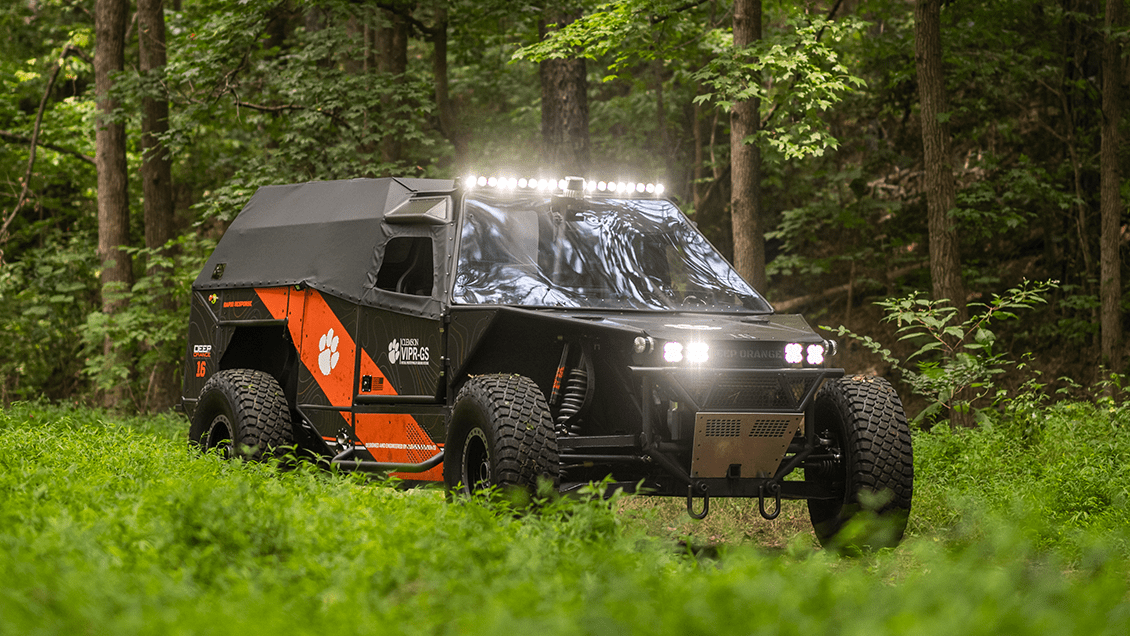
Clemson News // Courtesy
Deep Orange 16 is an emergency response vehicle that was created in collaboration with Clemson University and the U.S. Army.
A team of 17 Clemson graduate students in the Department of Automotive Engineering recently built the Deep Orange 16, an off-road vehicle, in collaboration with the U.S. Army.
Deep Orange 16 was shared with the public at the Ground Vehicle Systems Engineering & Technology Symposium (GVSETS) in Novi, Michigan, on Aug. 12, according to Clemson News.
Deep Orange 16 is a semi-autonomous vehicle prototype built for rapid emergency response in difficult terrain. It boasts a 350-kilometer range and an interior that can accommodate up to six passengers with a storage system for rescue and medical gear.
Critical vehicle functions include that the vehicle is engineered for the elements and has innovative monitoring and a rescue-ready interior.
According to Jordan Plumblee, the Manager of Marketing and Communications for CU-ICAR, the project was a collaboration between the VIPR-GS Research Center and the U.S. Army.
The vision is: “Deep Orange educates future innovators and engineering leaders who develop sustainable solutions that balance environmental, social and economic aspects,” according to the Deep Orange website.
The team is achieving this by “working collaboratively, students, multi-disciplinary faculty, and participating industry partners focus on designing and producing a future vehicle concept incorporating breakthrough technology innovations with new development, manufacturing and assembly processes,” Plumblee told The Tiger in an email.
The project is at the convergence point of academia, government and industry, which is happening here at Clemson University, according to Rob Prucka, Ph.D, the program’s director.
Deep Orange 16 was inspired by the rescue efforts following Hurricane Helene in the hopes of improving the capabilities of emergency responders.
“It’s really important that we try to help design vehicles that can support all of these natural disasters, which seem to be happening more often,” Prucka told Fox Carolina in an interview.
While the vehicle won’t be deployed on the missions it was designed for, the knowledge gained from production will benefit the VIPR-GS Research Center and the U.S. Army.
Deep Orange is open to students in the Automotive Engineering Department who are pursuing their master’s degrees.
Rohit Godse, a student and the team leader for Deep Orange, told the Tiger that this program influenced his decision to enroll at Clemson.
The program is based at the Clemson University International Center for Automotive Research (CU-ICAR) in Greenville, South Carolina.
Deep Orange is able to engage interested students in the industry, teaching hands-on lessons that textbooks might lack. The program is well-respected in the industry for its focus on immersive learning, according to Prucka.
Deep Orange 17 is currently in progress, and additional details surrounding the project have not yet been released.